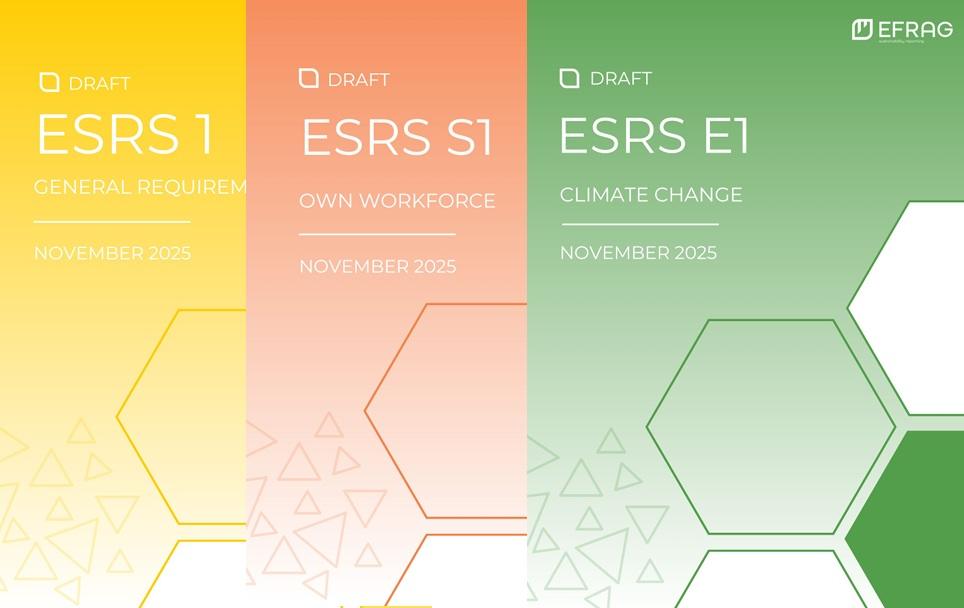IFRS Releases First Draft of ISSB’s New Sustainability and Climate Disclosure Standards
The International Financial Reporting Standards Foundations (IFRS) announced today the release of the first exposure drafts of proposed standards for company sustainability and climate related disclosures by its International Sustainability Standards Board (ISSB).
The new standards are aimed at addressing the need the demand by global capital markets for more comprehensive and consistent sustainability information from companies by forming a comprehensive global baseline of sustainability disclosures. The proposals envision sustainability-related financial information being reported alongside company financial statements, and would require companies to disclose how sustainability-related financial information is related to information in their financial statements.
The ISSB stated that it is working closely with international organizations and jurisdictions to support the inclusion of the standards into jurisdictional requirements.
The proposals build upon the recommendations of the Task Force on Climate-Related Financial Disclosures (TCFD), and also incorporate industry-based reporting requirements from SASB, which was recently integrated into the IFRS. In a separate release, the ISSB outlined its plans to build on the SASB standards and embed the industry-based standards development approach into its own standards development process.
The new publications include “Exposure Draft IFRS S1 General Requirements for Disclosure of Sustainability-related Financial Information,” and “Exposure Draft IFRS S2 Climate-related Disclosures.”
IFRS S1 sets out sustainability-related financial information reporting requirements for companies. The proposal would require a company to disclose material information about its exposure to all significant sustainability-related risks and opportunities, including information about impacts and dependencies on people, the planet and the economy, if material to the assessment of the company’s enterprise value. Disclosures required under the standard include information to enable investors to understand the company’s governance processes used to monitor and manage sustainability risks and opportunities, the integration of these risks into the company’s overall risk management process, the company’s strategy for addressing significant sustainability-related risks and opportunities, and information on how the company measures, monitors, manages these risks and opportunities, including the metrics and targets used, and its assessment of performance towards its targets.
The proposed standard also requires disclosure of sustainability-related information across a company’s value chain, including activities, resources and relationships along its supply, marketing and distribution channels.
IFRS S2 would require companies to disclose material information enabling investors to assess the effect of significant climate-related risks and opportunities on enterprise value. The proposal takes a similar ‘Governance, Strategy, Risk Management, and Metrics and Targets’ approach as IFRS S1. Required information under the standard would include the governance processes, controls and procedures used to monitor and manage climate-related risks and opportunities, information about how climate change may affect business models, strategy and cash flows, and the identification of physical climate change risks and transition risks related to the shift to a low-carbon economy. Companies would also be required to report on plans to address climate-related transition risks and opportunities, including how they plan to achieve climate-related targets, or how they aim to adapt to climate-related value chain risks.
Additionally, the climate-related standard would require companies to disclose absolute Scope 1, 2, and 3 information, calculated using the GHG protocol. This requirement goes beyond the SEC’s recently proposed climate disclosure rules, which would require scope 3 information only if they are material, or if the company has a stated emissions reduction goal that includes Scope 3. The ISSB stated that “The requirement to disclose Scope 3 emissions reflects the importance of providing information related to a company’s value chain.”
The ISSB has initiated a 120-day consultation period to collect feedback on the new draft proposals, and anticipates issuing the new standards by the end of this year.
Emmanuel Faber, Chair of the ISSB, said:
“Rarely do governments, policymakers and the private sector align behind a common cause. However, all agree on the importance of high-quality, globally comparable sustainability information for the capital markets. These proposals define what information to disclose, and where and how to disclose it. Now is the time to get involved and comment on the proposals.”
Click here to access IFRS S1, IFRS S2, and a high-level summary of the new proposals.





